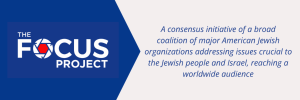
BACKGROUND – TALKING POINTS – ACTIONS TO CONSIDER – STORIES MAKING NEWS
![]()

Enduring Contributions and Heritage
From even before the U.S. gained independence, Jews have been woven into the fabric of American life, contributing their energy, intellect and spirit to the building of the American Dream. Founded in the early days of NYC in 1654, Congregation Shearith Israel was the first organized Jewish community in North America – standing as a testament to the enduring presence of Jewish life in America.
Jewish immigrants often arrived penniless and faced discrimination, but with a strong hope and desire to contribute to their new home. A spirit of patriotism is a consistent hallmark of the Jewish American experience – demonstrating a profound sense of shared responsibility in its growth and defense.
Recognizing this enduring legacy of groundbreaking innovations and profound contributions to culture, education, science, technology and security, Jewish American Heritage Month is observed each May. This annual commemoration, officially established in 2006 by President George W. Bush, offers an important opportunity to reflect on the remarkable impact of Jewish Americans on the very story of our nation.

Shaping American Culture: ‘Give me your masses yearning to be free’
“Give me your tired, your poor, your huddled masses yearning to breathe free” – famously inscribed on the Statue of Liberty was penned by Emma Lazarus, a 19th-century Jewish poet. This inscription has been a beacon of hope for arriving immigrants. Lazarus was deeply connected to her Jewish heritage and passionately supported re-establishing a Jewish homeland in the Land of Israel. In “The Banner of the Jew,” she reminded Jews that “With Moses’s law and David’s lyre, Israel’s ancient strength remains unbent.” Her commitment to American ideals and the Jewish future demonstrated that these were not dual loyalties.
God Bless America and even White Christmas – songs still sung today – were written by Irving Berlin, a Jewish Russian immigrant who fled pogroms in the 1890s as a child and survived in NY on food scraps and used clothes. He became one of the most successful and influential songwriters in American history. Berlin produced an unparalleled catalog of American popular songs and enduring patriotic anthems – connecting with the broader American cultural experience.
The cultural vibrancy of Jewish Americans continues:
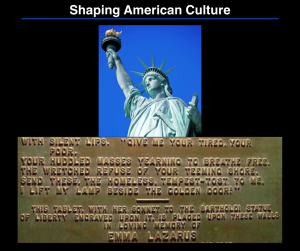
Champions of Civil Rights: Pillars of Justice
Hadassah, The Women’s Zionist Organization of America, was founded in 1912 by Henrietta Szold. She was a social reformer who worked to improve the lives of newcomers to America. Recognizing the challenges faced by Jewish immigrants, she established important programs focused on education, support services and skills development to help them integrate successfully into American life. Szold promoted Jewish immigration to the Land of Israel and the revival of Jewish culture.
Louis Brandeis was a distinguished legal scholar who became the first Jewish Justice on the U.S. Supreme Court in 1916. He was a strong proponent of fundamental rights and fairness under the law. His influential rulings significantly shaped the understanding of individual liberties, including freedom of speech and the right to privacy and aimed to ensure a just application of the law for all Americans.
The pursuit of civil rights was also championed by:
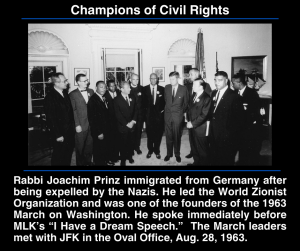
A Tradition of Service in the Military: Starting in the Revolutionary War
Jonas Phillips was a veteran of the American Revolutionary War who arrived from Germany in 1759 as an indentured servant. During the war, he served in a Philadelphia militia, founded a synagogue in Philadelphia and wrote a letter to a Dutch relative requesting supplies in Yiddish to evade the British communication blockade. Phillips made a civil rights petition and address for religious freedom to the Constitutional Convention to avoid making a Christian religious oath a requirement for holding public office. One of his grandsons, Uriah Phillips Levy, became the first Jewish commodore in the U.S. Navy.
Leopold Karpeles was a Medal of Honor recipient during the American Civil War. An immigrant to Texas from Prague, Karpeles was an abolitionist who provided aid to the Underground Railroad for African American slaves. He moved to MA where he served in an infantry unit. He was recognized for exceptional bravery at the Battle of the Wilderness in May 1864 because he rallied retreating soldiers against the advancing Confederate army. Karpeles was severely wounded at the Battle of North Anna and refused to be evacuated until he fainted. He was the first Jewish recipient of the highest military honor and later advocated for veteran causes.
More significant contributions:
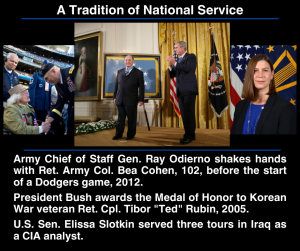
![]()

![]()

Here are some ways you can engage, learn and celebrate in Jewish American Heritage Month in your community and beyond:
![]()

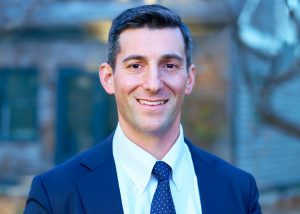
The newly created Massachusetts Special Commission on Combating Antisemitism held a hearing in February to investigate why the state’s teachers’ union was providing allegedly antisemitic educational materials on the Hamas war against Israel to its members.
The materials included dollar bills folded up into a star of David, Nazi-era imagery, telling kindergarteners that Zionists are “bullies” and glorifying a U.S.-designated terrorist organization. During the hearing, the president of the Massachusetts Teachers Association argued that the curriculum were intended to teach diverse perspectives on Israel and Palestine, not an endorsement of the blatantly biased message.
Rep. Simon Cataldo was raised Jewish and is the co-chair of the commission. He refused to accept the union’s excuses: “It’s pretty simple: we need to keep classically antisemitic so-called teaching material out of our kids’ schools. Over the past several years, our commonwealth has earned the ignominious reputation as a hub of antisemitic activity. We have heard it through harrowing accounts from Jewish students, parents, educators and people of all backgrounds.” Massachusetts had the fifth-highest number of antisemitic incidents of any state last year.
In an interview with The Focus Project, Cataldo insisted he won’t be deterred from the mission of exposing and combatting antisemitism – wherever it comes from.
“Kids are still experiencing this in school. Parents are experiencing it. People are experiencing it in health care and the arts and in the workplace. We’re not going to spare people based on their political ideology, left, right, or anything in between. We’re just going to be the heat seeking missile for wherever antisemitism is occurring and we’re going to bring that to light and then we’re going to aggressively pursue recommendations to combat that.
“I know other states are looking at what we’re doing,” he shared. “The work is urgent, and the mission is critical.”
![]()

Stories Impacting American Jews
Stories Impacting the U.S. and Israel
Stories From Around the World
![]()
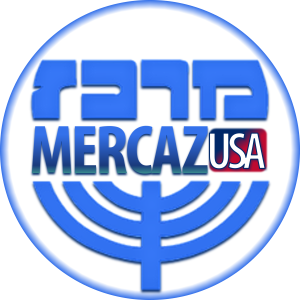
This content is developed by The Focus Project in partnership with MERCAZ USA. The Focus Project distributes weekly news and talking points on timely issues concerning Israel and the Jewish people, including antisemitism, anti-Zionism and the delegitimization of Israel. It represents a consensus view across a spectrum of major American Jewish organizations. MERCAZ USA recognizes and respects the diversity of views on these issues among its readers and the community at large.
![]()